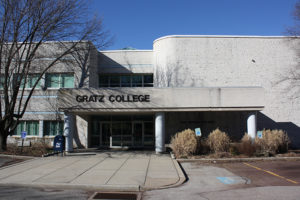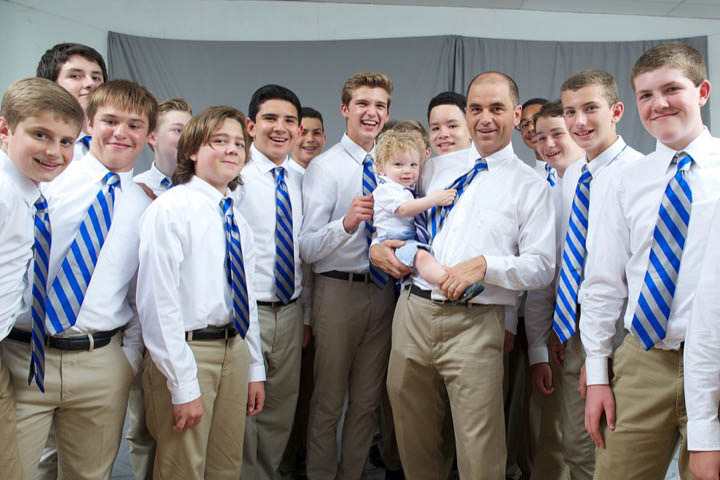How strong role models and learning from mistakes can make a difference in the lives of middle school boys


In 2003, a group of boys at the Landon School in Bethesda, Maryland—most of them lacrosse players—conspired to cheat on the SAT. For a well-respected prep school, the scandal was a disappointment and a PR nightmare. For history teacher Todd Barnett, it prompted a career shift into the school’s newly created Endowed Chair for Ethics and a personal focus on what really works in teaching character.
Barnett brought in speakers, held conferences, and started student leadership programs. But the most effective approach, he says, was the Prefect Program, in which hand-picked high school seniors were paired with ninth graders to coach them in moral decision-making.
“The whole point was to get kids to exercise their moral muscles as much as possible, to think through things that might happen,” Barnett said. “Schools tend to have the attitude that things should be black and white. But there are so many personalities and situations, and kids are growing throughout school. Often in those conversations, kids were talking about the gray of the issues.”
Thinking through such issues—and how to help students care about them—served Barnett well when he founded the Field School, a private, all-boys middle school in Crozet, Virginia. The school, which has 50 students in fifth through eighth grades, has a stated mission to “develop well-rounded boys of character and accomplishment.”
“Character development is an appeal of our school,” Barnett said. “Parents perceive that this is going to be a big part of our curriculum, and middle school is a vital time for that to develop. There are lots of opportunities to reflect and learn during these years.”
Barnett believes the successful shaping of character happens in two primary ways at the Field School: through the modeling of ethical behavior by teachers, and how teachers and school leadership respond when things go wrong.
Barnett tries to hire teachers who exemplify the kind of character he wants to see in his students.
“I think about it with myself,” he said. “I feel like if I want people to be respectful, I need to be respectful of them. If I want them to be responsible, I need to model that in the classroom.”
The quality of compassion, Barnett noted, can be particularly challenging for boys at this age. He encourages his staff to treat the students with the kind of tender-heartedness they want to see emerge.
“The more you can show you care about them, the more it rubs off, and they are willing to behave in ways that are not necessarily reflective of adolescent boys,” Barnett said. “We do all we can to show respect to the boys, and they respond to us in the way we treat them.”
Children are bound to make mistakes, and middle school boys are no exception. Instead of dreading student transgressions, Barnett sees them as a prime opportunity for growth and for communicating each boy’s value.
“Kids get to learn when they do something wrong,” he said. “Those episodes get a lot of our collective attention. We call you out when you do something wrong because you matter in this community.”
For small infractions, there is a system of merits and demerits, with resultant rewards and consequences. In other circumstances, the school’s response depends on the situation, but reminiscent of the Prefect Program Barnett initiated years ago, it always involves a lot of discussion. Barnett has learned that in the case of dishonesty, it is best to engage the student as soon as possible; coming clean happens more often when there isn’t time to concoct a good lie. On the other hand, he noted that giving students reflection time can be helpful with interpersonal conflicts and other issues. In all instances, teachers spend a great deal of time talking through missteps with students, rather than just meting out punishments.
“We try to get them to a point where they feel remorseful,” Barnett said. “Hopefully this will help them think about things before they do them again.”
It is this modeling and careful handling of mistakes that Barnett hopes will shape young men who avoid the kinds of disastrous choices he witnessed early in his career. Field School alumni confirm that Barnett’s priorities and efforts in this area are compelling.
“In surveys, our graduates tell us that the character formation component is more significant than any of the other programs we do,” Barnett said. “They leave and eventually come back from college and tell us, This is such a good place and I didn’t appreciate it at the time. A big part of that is that we find lots of opportunities to talk, counsel, advise, and encourage.”